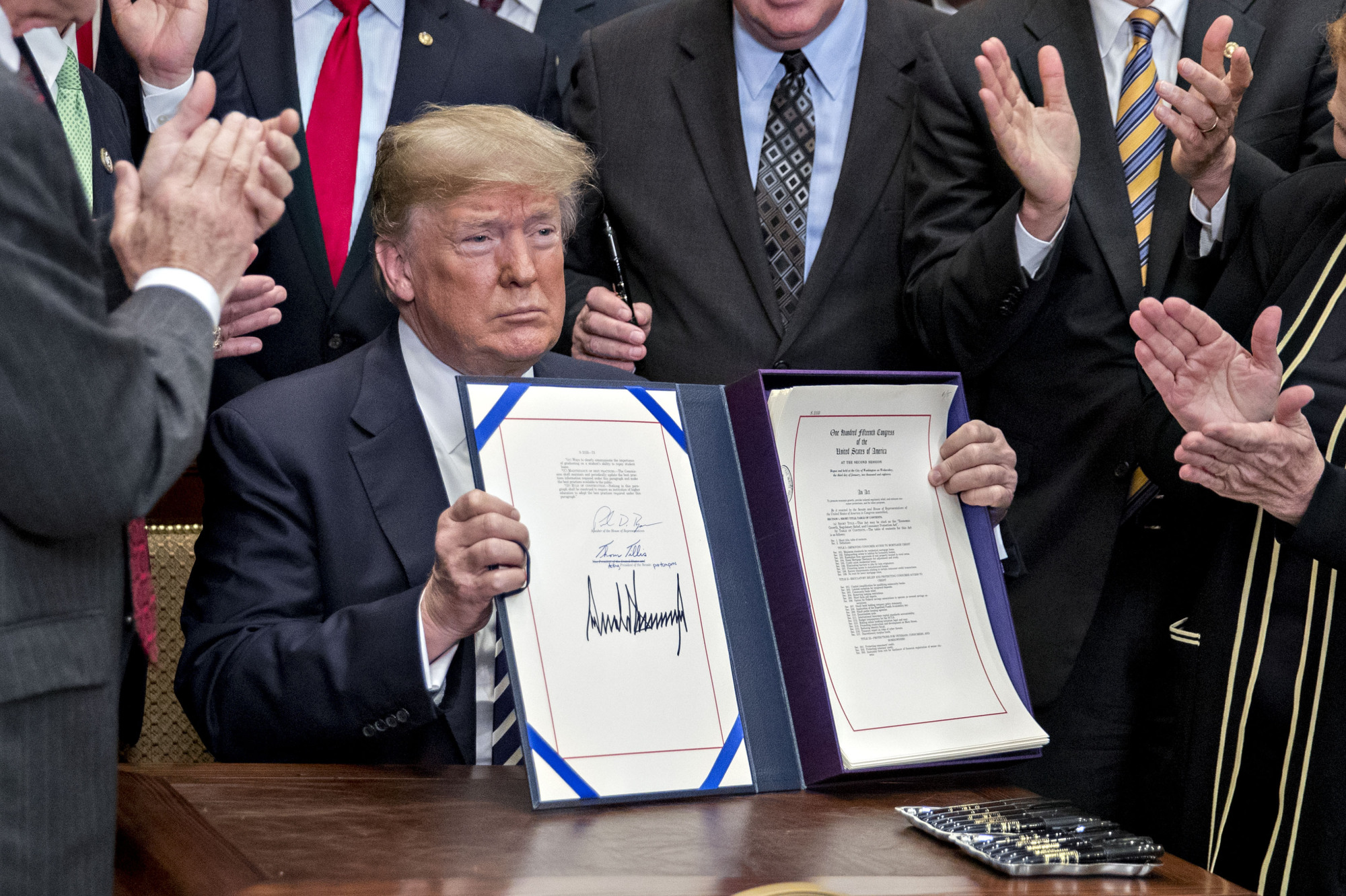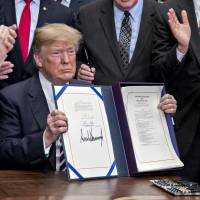U.S. President Donald Trump signed into law on Thursday a bill that would ease rules on most banks for the first time since the 2007-2009 financial crisis.
The legislation eases regulations on all but a handful of the nation's largest banks, and marks a significant victory in Trump's efforts to cut rules in a bid to spur economic growth.
The legislation eases oversight of all banks below $250 billion in assets, and exempts small community banks from a host of stricter rules and oversight established by the 2010 Dodd-Frank financial reform law.
"The legislation I'm signing today rolls back the crippling Dodd-Frank regulations that are crushing small banks," Trump said at the bill signing.
While the new law lessens rules on a large number of U.S. banks, it stops short of eliminating much of Dodd-Frank. Most of that law's core provisions remain intact, and the new law's language is primarily aimed at helping smaller community banks, while preserving stricter rules for the biggest banks on Wall Street.
After passing legislation to ease bank rules, Congress may consider an additional package of bills aimed at relaxing securities laws to make it easier for companies to raise capital.
However, it is not clear if there is enough appetite among moderate Senate Democrats to advance such legislation, after a bruising fight to pass the bank bill.



















With your current subscription plan you can comment on stories. However, before writing your first comment, please create a display name in the Profile section of your subscriber account page.